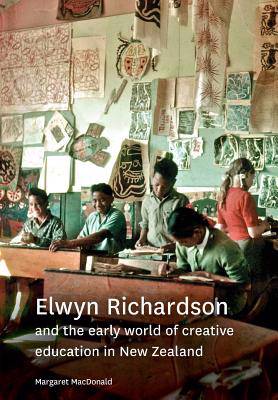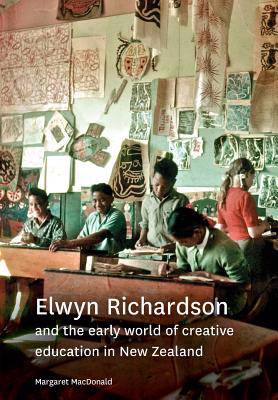
- Afhalen na 1 uur in een winkel met voorraad
- Gratis thuislevering in België vanaf € 30
- Ruim aanbod met 7 miljoen producten
- Afhalen na 1 uur in een winkel met voorraad
- Gratis thuislevering in België vanaf € 30
- Ruim aanbod met 7 miljoen producten
Zoeken
Elwyn Richardson and the early world of creative education in New Zealand
Margaret MacDonald
Paperback | Engels
€ 47,45
+ 94 punten
Omschrijving
From a one-roomed school in the remote Far North of New Zealand, Elwyn Richardson became a radical and internationally-renowned teacher. This is his story and it is as inspirational and timely for educators and policy makers as ever. Central to his philosophy was his use of the natural environment to create an integrated programme of art and science. This book explores the man and the influence of the innovative pedagogy he developed at Oruaiti School from 1949 to 1962. Described as an 'educational saboteur' by poet James K. Baxter, Richardson valued curiosity and turned to children's lives and their immediate surroundings to shape his curriculum. Learning was often organised in themes and students worked together on real problems drawn from the local community. The record of his teaching at Oruaiti, In the Early World, first published in 1964, was widely used in teacher education in New Zealand and the United States.
Specificaties
Betrokkenen
- Auteur(s):
- Uitgeverij:
Inhoud
- Aantal bladzijden:
- 284
- Taal:
- Engels
Eigenschappen
- Productcode (EAN):
- 9781927231562
- Verschijningsdatum:
- 1/01/2016
- Uitvoering:
- Paperback
- Formaat:
- Trade paperback (VS)
- Afmetingen:
- 170 mm x 244 mm
- Gewicht:
- 453 g

Alleen bij Standaard Boekhandel
+ 94 punten op je klantenkaart van Standaard Boekhandel
Beoordelingen
We publiceren alleen reviews die voldoen aan de voorwaarden voor reviews. Bekijk onze voorwaarden voor reviews.








